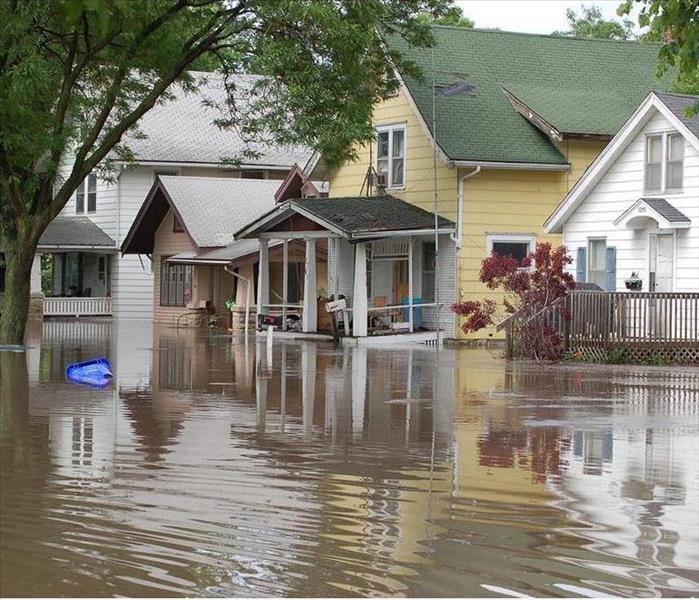Flooding is always a risk
9/15/2022 (Permalink)
Unfortunately, just because you don't reside in a flood zone doesn't means that you won't get flooding.
Even the driest areas can experience what are known as flash floods. Rivers, streams, and lakes are almost always overflowing their banks, given a couple of rainy days. New construction in your neighborhood can even change runoff patterns in the area and can increase our flood risks.
The cost of flood damage is expensive. This cost can vary depending on the type of damage and where the water came from. Any tips that can help prevent this has to be worth the time to try them. You can't stop a flood from damaging your home from the above situations but you can do some things to keep a flood from happening inside your home.
Here are some things to try:
• An inspection and flushing your water heater once a year, by a plumber, can contribute to preventing it bursting on you and flooding the area.
• Replacing the rubber hoses on all appliances that use water with metal braided ones can help to avoid the failing of the rubber ones as they can get hard and burst. Check all hoses; even the metal braided ones every year.
• Leaks from toilets are often indicated by a little leakage from the base.
• Do you know where to locate the main water shut-off? If a pipe burst, inside, you need to be able to get it turned off quickly.
• If you have a sump pump, now is a good time to get it checked and think about a backup unit.
• Always be looking for signs of plumbing leaks, such as on ceilings and walls; you are looking for stains and moisture on those walls and floors.
• Leaking or even broken pipes are often gushing water, and it is not noticed because it might be hidden. Check out your water usage when no faucets are turned on; locate the water meter and take a reading, then use no water for an hour or so and read it again. Has it moved? If so, you have a leak someplace, so get a plumber to check it out.
• Always monitor your monthly water bill. If it goes up a lot one billing cycle, you might have the need for a plumber to come in and check all connections.
• Since a lot of water comes from inside your home and can damage many walls, floors, furniture and provide the moisture needed for molds to grow, doing whatever can be done to prevent leaks is a good exercise to undertake.





 24/7 Emergency Service
24/7 Emergency Service
